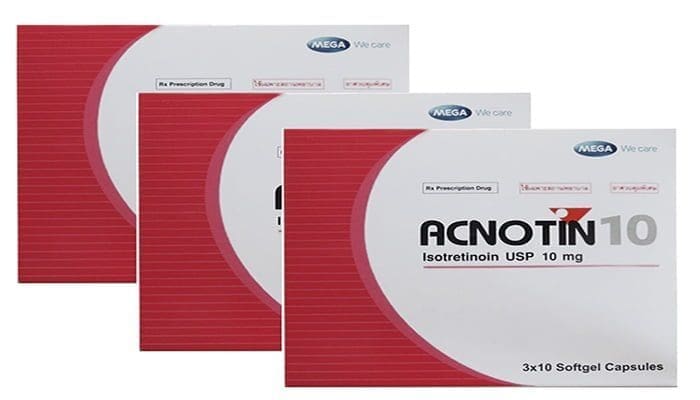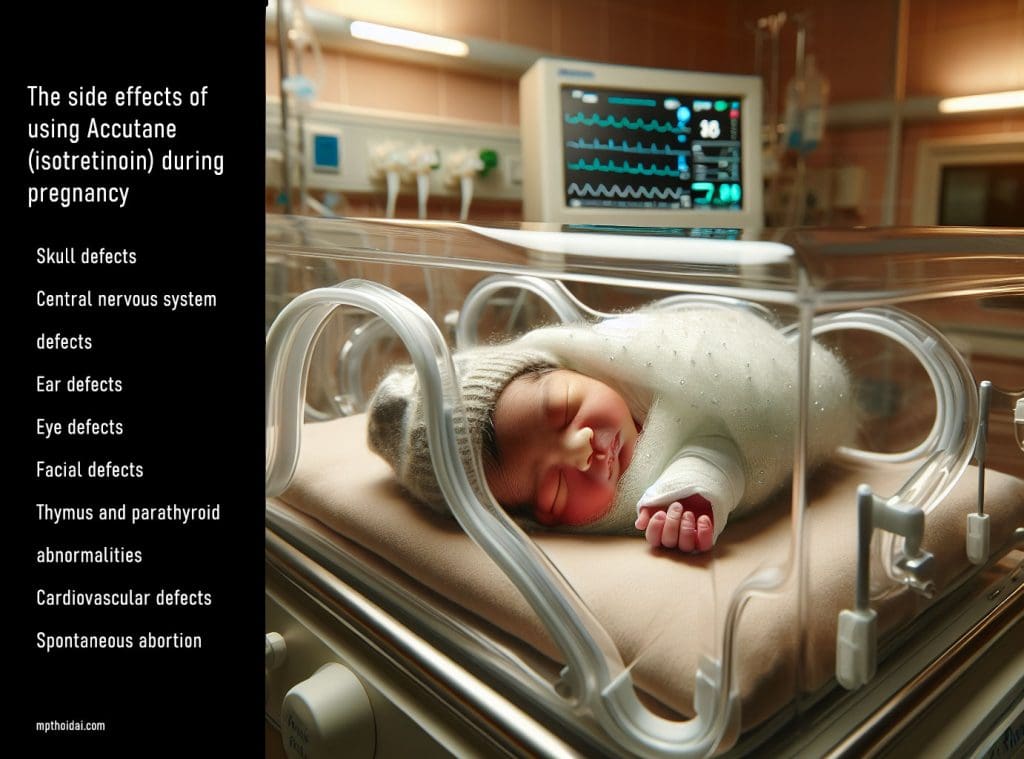Fighting acne becomes extremely difficult when patients blindly follow unfounded advice and recklessly choose unscientific products that are completely incompatible with their skin characteristics. Besides, uncontrolled use of isotretinoin leads to a very high risk of causing birth defects; the consequences are truly unpredictable.
1. A correct understanding of acne treatment
Treating acne is not a matter of waiting for a miracle to happen; it is a process combining patience and science. Acne not only affects aesthetics but also causes low self-esteem and reduces the quality of life and work. Patients need to be optimistic and stick to the treatment process based on their skin characteristics, constitution, and living environment.
Advice from friends and advertising cannot be applied to all cases. It is important to understand the causes of acne, practice good personal hygiene, take care of your skin, combine a balanced diet, and maintain a positive mood to achieve optimal results.
Not only in the treatment of acne, we also need to find specialists for accurate advice for other diseases.
2. Causes of acne and how to choose a facial cleanser
Acne can arise from many causes; we temporarily classify them into 5 main groups as follows:
- Autologous causes: due to hormonal changes, puberty, and menstrual cycle changes in women.
- Harmful habits: not regularly washing pillowcases, bed sheets, and towels; poor personal hygiene.
- Genetics: Modern science has identified a number of genes that govern this disease. You can refer to one of those studies here.
- Irritation: due to contact with cosmetic chemicals that the body cannot tolerate. Irritation is caused by using skincare products that are not suitable for your body condition.
- Environmental impact: dust, hot weather, eating foods high in sugar and fat. Prolonged stress leads to increased production of the hormone cortisol, causing acne.
Personally, I find that irritation and acne caused by using the wrong skin care products cause the most complications. The biggest reason for this is that customers lack skincare knowledge and don’t know what their skin type is to choose the right product.
To determine your skin type and find suitable methods and products, you can use the following tool: https://mpthoidai.com/en/check-skin
A common example that demonstrates a lack of basic knowledge is washing your face too thoroughly. Facial skin always has a layer of oil to protect and moisturize. The habit of using soap or face cleanser with a high pH to remove oil causes the skin to defend itself by secreting more oil (especially the sides of the nose) to return to its original balanced state. This process repeats continuously, causing pores to become clogged. Therefore, people should avoid buying facial cleansers that make the skin dry and tight.
3. Side effects and notes when using pharmaceuticals
3.1 Negative Effects of Isotretinoin
Southeast Asia, West Asia, and India are regions with many gaps in pharmaceutical management. These markets are circulating many types of cosmetics with unclear ingredients, as well as drugs that require a doctor’s prescription to be used.
Some acne treatment products have been found to contain isotretinoin, the most common brand names being isotina, acnotin, and desactin. This ingredient has very strong and fast effects, so it is often used by customers without paying attention to side effects.
The most widely circulated products include Acnotin 10mg and 20mg. This medicine contains a lot of antibacterial active ingredients in high doses, so it can treat very severe acne.
Instructions for use of the drug clearly state that it is not for people with impaired liver and kidney function, patients with vitamin A poisoning, patients with hyperlipidemia, or patients sensitive to isotretinoin. Women who are pregnant and breastfeeding.
The drug can cause many other side effects, such as dry skin, dry lips, nausea, abdominal pain, loss of appetite, gingivitis, conjunctivitis, poor adaptation to darkness, cataracts, visual disturbances, headaches, and depression.

3.2 Isotretinoin increases the rate of fetal malformations.
The negative effects of isotretinoin on the fetus have been proven through many mainstream studies. The rate of children with birth defects can be up to 35%.
Reference: Current Trends Birth Defects Caused by Isotretinoin — New Jersey (cdc.gov)
Some pharmaceutical companies claim that it is safe to stop using the drug just one month before getting pregnant. However, the quarantine period from the last dose must be 3 months or more to ensure safety.
Most women who are using medication and become pregnant will have a fetus with birth defects. Therefore, women need to be careful to use contraception continuously during treatment.
Birth defects include: skull defects, central nervous system defects, ear defects, eye defects, facial defects, abnormal thymus and parathyroid glands, cardiovascular defects, and spontaneous miscarriage.

4. Things to do when treating acne
The psychology of most girls when preparing for their wedding is that they always want to look more beautiful. Therefore, they often look for methods and products that can quickly treat acne. The top priority is medication, and we will often look for isotretinoin.
Brides should pay attention to isolating for as long as possible after taking isotretinoin and using contraceptives.
For people with severe acne, I think you should take the following steps to get better results:
- Go to reputable dermatology clinics or hospitals for treatment. Be diligent about regular check-ups.
- When receiving the treatment regimen and prescription, ask for further opinions from a doctor or other specialist. At the same time, you should also educate yourself about the medications in your prescription to clearly know what you are taking.
- Keep a comfortable mind and patiently pursue the treatment process. Take personal hygiene measures for clothing and housing.
The most important thing is to find information from reputable sources or official research.
